Cressi Thor EBS Fins Black/Silver
$299.00 Original price was: $299.00.$98.99Current price is: $98.99.
- Quality You Can Trust
- 7 Days of Hassle-Free Returns
- Made of environmentally friendly materials
- Elevate Your Shopping Experience


The new THOR EBS fin has a
peculiar and unprecedented structure that combines the two central
ribs in high modulus polypropylene, very reactive and a central
area of ??the thermoplastic rubber with a convex section, assembled
in a polypropylene blade. Two lateral nozzles located in the area
where bending starts release the associated negative forces and
allow the use of two high response ribs. This combination
causes a channeling and acceleration of water flow, which
stabilizes and increases propulsion at equal effort.
The inclination of the blade with respect to the foot
pocket has increased by 5% compared to traditional diving
models. This angulation provides greater efficiency and a more
natural foot position during flapping.
Thor enjoys an exclusive system of injection of 3
materials patented by Cressi, which offers a combination
of strength, power, comfort and aesthetics and the optimization of
the requirements of each area of the fin.
Main body of polypropylene: This material,
inherited from apnea fins, has as main characteristic the rapid
transmission of the applied energy and its great structural
rigidity. It is applied to the shovel and inner area of the sole
sandwich. He is very nervous and reactive and facilitates a very
agile and effective flutter. It has a stress-performance ratio
clearly superior to traditional materials (natural rubber or
thermoplastic, polyurethane, EVA). Also, it has a great resistance
to breakage to the point that Cressi guarantees its life for
sporting use:
Flexible elastomer: It is applied to the foot
pocket and the areas that require flexibility and elasticity, since
they influence the comfort of the diver: Footrest toe, interior of
the sole and area of the instep in contact with the ankle. It is
also assigned to the areas that require non-slip capacity: Inserts
in the sole (area in contact with the ground) and anti-shock, such
as the lateral nerves of the blade. The fusion of both materials is
performed at the molecular level and its strength is guaranteed for
life for sports use.
Polypropylene of the high module: Especially reactive, it is
applied to the nerves of the blade and is responsible for providing
rigidity and return to the blade. This material connects the
critical point of transmission of energy (the instep) with the
nerves in one piece, avoiding the usual loss of energy through
excessively flexible components of the foot pocket that produce a
heavy, slow and fatigue fluttering the instep.
It also uses several technologies common to the rest of the
Cressi models.
‘Shoe design under the blade’: Now increasing its angle
by 5%, the blade comes directly from the top of the foot
pocket, solidly joining the fin to the foot and transmitting all
the effort generated by flapping without loss of energy through
soft areas. This format allows the water to be channeled from the
same ankle to the final edge of the blade, unlike traditional
models, in which the foot pocket has no contribution to the
advance. Apart from improving the directionality of the flutter,
this design provides a performance between 10% and 15% higher than
what would correspond to the fin for its blade surface.
Thickness of the blade of decreasing profile
‘spina di pesce’ to improve the directionality of the flutter and
achieve a greater inertia of the final part of the fin.
Foot Pocket reinforced in the upper area by a
supplementary thickness and laterally by two prolongations of
polypropylene from the upper to avoid the dispersion of energy in
the process of transmission from the foot to the blade.
FOOT POCKET with three differentiated volumes,
with the central area narrowed so that the foot remains firmly
fixed inside and the transmission of the foot-paddle effort is
direct and precise.
EBS Elastic Strap Sistem (take a look at TECHNICAL
FEATURES)
Polypropylene blade: This material, inherited from apnea fins, has
as its main characteristic the very fast transmission of applied
energy and… The inclination of the blade with respect to the foot
pocket has increased by 5% compared to traditional diving models.
This… Polypropylene of the high module: Especially reactive, it
is applied to the nervaturas of the blade and is responsible for
providing… The two lateral nozzles located in the zone where the
flexion starts release the associated negative forces and allow the
use… Flexible elastomer: It is applied to the foot pocket and the
areas that require flexibility and elasticity, since they influence
the… Central area of ??the thermoplastic rubber blade of convex
section assembled in the polypropylene blade. Shoes with three
different volumes, with the central area narrowed so that the foot
remains firmly fixed in its interior and… Foot pocket reinforced
in the upper area by a supplementary thickness and laterally by two
extensions of polypropylene from the upper… EBS FINS STRAP SYSTEM
Auto adjustable strap made in pure latex of high elasticity. The
latex is the most elastic material… Rigid sole with non-slip
inserts made of thermoplastic rubber.
Polypropylene blade: This material, inherited from apnea fins,
has as its main characteristic the very fast transmission of
applied energy and its great structural rigidity. It is applied to
the shovel and inner area of ??the sole sandwich. He is very
nervous and reactive and facilitates a very agile and effective
flutter. It has a stress-performance ratio clearly superior to
traditional materials (natural rubber or thermoplastic,
polyurethane, EVA). Likewise, it has a great resistance to breakage
to the point that Cressi guarantees it for life for sporting
use.
The inclination of the blade with respect to the foot pocket has
increased by 5% compared to traditional diving models. This
angulation provides greater efficiency and a more natural foot
position during fluttering.
Polypropylene of the high module: Especially reactive, it is
applied to the nervaturas of the blade and is responsible for
providing rigidity and return to the blade. This material connects
the critical point of transmission of energy (the instep) with the
nerves in one piece, avoiding the usual loss of energy through
excessively flexible components of the foot pocket that produce a
heavy, slow and fatigue fluttering the instep .
The two lateral nozzles located in the zone where the flexion
starts release the associated negative forces and allow the use of
two ribs of high rigidity
Flexible elastomer: It is applied to the foot pocket and the
areas that require flexibility and elasticity, since they influence
the comfort of the diver: Footrest toe, interior of the sole and
area of ??the instep in contact with the ankle. It is also assigned
to the areas that require non-slip capacity: Inserts in the sole
(area in contact with the ground) and anti-shock, such as the
lateral nerves of the blade. The fusion of both materials is done
at the molecular level and its strength is guaranteed for life for
sports use.
Central area of ??the thermoplastic rubber blade of convex
section assembled in the polypropylene blade.
Shoes with three different volumes, with the central area
narrowed so that the foot remains firmly fixed in its interior and
the transmission of the foot-foot-paddle effort is direct and
precise.
Foot pocket reinforced in the upper area by a supplementary
thickness and laterally by two extensions of polypropylene from the
upper to avoid the dispersion of energy in the process of
transmission from the foot to the blade.
.
EBS FINS STRAP SYSTEM Auto adjustable strap made in pure latex
of high elasticity. The latex is the most elastic material of
nature and has the property of extending to 8 times its length
without breaking and with total elastic memory, which means,
recovering its initial length. Applied to the fins’ strap gives us
great advantages: Reduces the need for sizes since the same strap
covers loosely wide ranges of elongation. Allows a relationship
insertion comfort vs. fin’s fixation higher than spring systems,
because of its high elastic coefficient (X8 vs. X1.5 of the
spring). Eliminates the messy need of adjustment that traditional
buckles have, a process that not always guarantees a perfect heel
fixing, especially with non-experienced divers or stress situations
during the equipping process. Allows, maintaining the flapping
comfort, a high pressure level over the heel which is essential to
obtain a right energy transmission applied to the fin without
energy loss because of the spring effect.
Rigid sole with non-slip inserts made of thermoplastic
rubber.
EBS ELASTIC STRAP SYSTEM
It combines new buckles of an essential and hydrodynamic design,
adjustable to all Cressi models, with a brand new adjustable strap
made of highly elastic pure latex.
The latex is the most elastic material from nature and has the
quality to extend until 8 times its own length without breaking and
with complete elastic memory, that is to say, recovering its
initial length.
This on the fin’s strap gives us great advantages:
Features:
- Allows a relationship between comfort of placement and fin’s
fixing, over systems with springs, exactly because of its high
elastic coefficient (X8 vs. X1.5 of the spring). - It eliminates the messy need of adjustment that traditional
buckles have, a process that not always guarantees a perfect heel
fixing, especially with non-experienced divers or stress situations
during the equipping process. - It allows, maintaining the flapping comfort, a high pressure
level over the heel which is essential to obtain a right energy
transmission applied to the fin without energy loss because of the
spring effect. This is certainly its most significant feature
because a strap excessively soft, long or without elastic memory
reduces drastically the fin’s efficiency. - It’s easily replaceable and essential both conceptually and in
its production and assembly. - The natural latex used is of greatest quality without burdens
to affect on its features and it guarantees a high resistance to
usage, saltpeter and sun exposure.
Be the first to review “Cressi Thor EBS Fins Black/Silver” Cancel reply
Related products
Diving & Snorkeling
Diving & Snorkeling
Diving & Snorkeling
Diving & Snorkeling
Diving & Snorkeling
Catch Bags
Diving & Snorkeling
Diving & Snorkeling

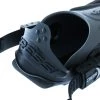
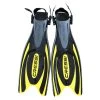
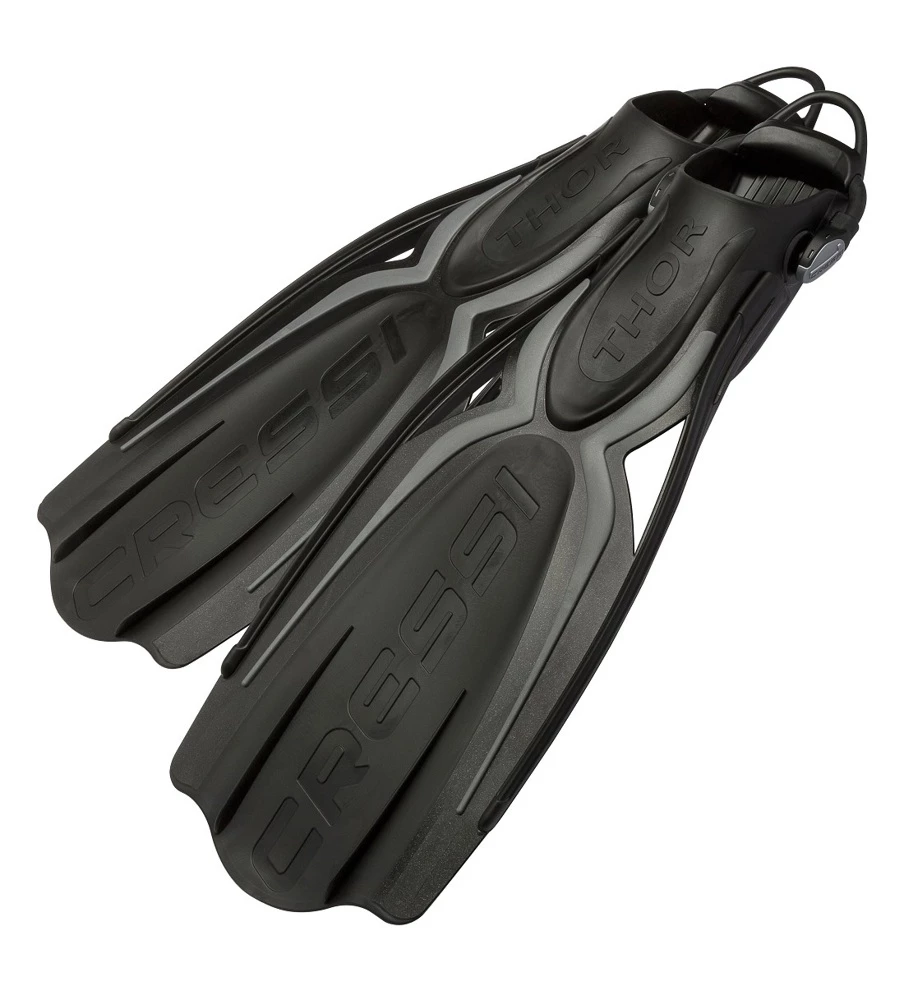
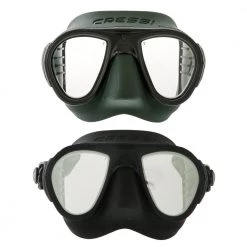
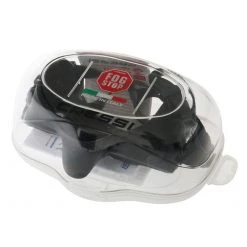
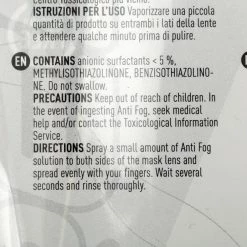

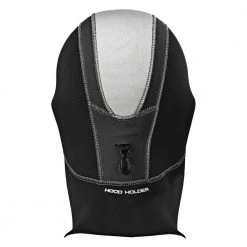
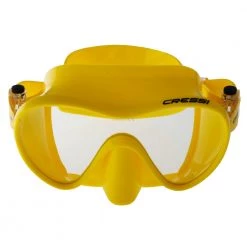
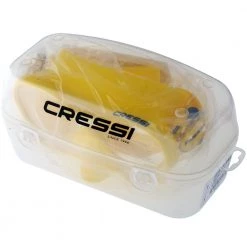
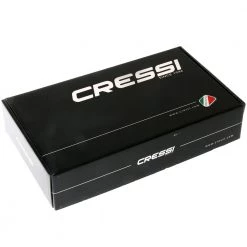




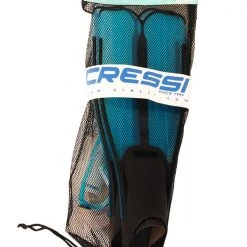
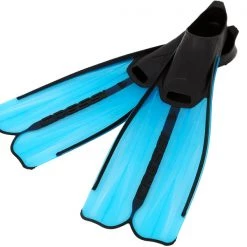
Reviews
There are no reviews yet.